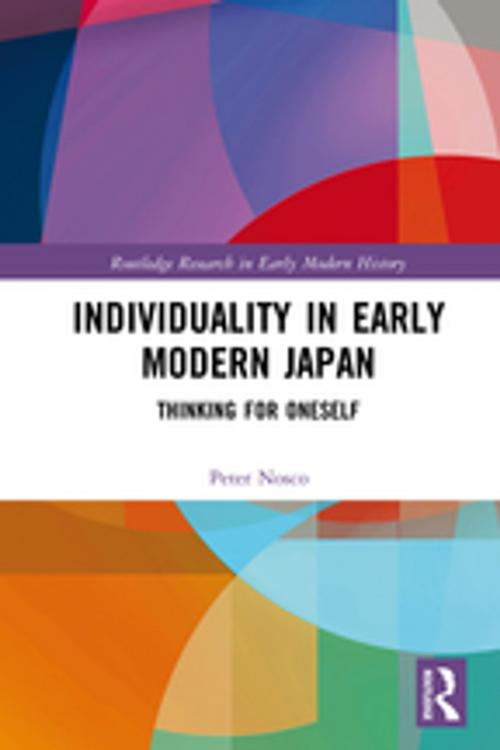| Author: | Peter Nosco | ISBN: | 9781351389617 |
| Publisher: | Taylor and Francis | Publication: | September 13, 2017 |
| Imprint: | Routledge | Language: | English |
| Author: | Peter Nosco |
| ISBN: | 9781351389617 |
| Publisher: | Taylor and Francis |
| Publication: | September 13, 2017 |
| Imprint: | Routledge |
| Language: | English |
Two of the most commonly alleged features of Japanese society are its homogeneity and its encouragement of conformity, as represented by the saying that the nail that sticks up gets pounded. This volume’s primary goal is to challenge these and a number of other long-standing assumptions regarding Tokugawa (1600-1868) society, and thereby to open a dialogue regarding the relationship between the Japan of two centuries ago and the present. The volume’s central chapters concentrate on six aspects of Tokugawa society: the construction of individual identity, aggressive pursuit of self-interest, defiant practice of forbidden religious traditions, interest in self-cultivation and personal betterment, understandings of happiness and well-being, and embrace of "neglected" counter-ideological values. The author argues that when taken together, these point to far higher degrees of individuality in early modern Japan than has heretofore been acknowledged, and in an Afterword the author briefly examines how these indicators of individuality in early modern Japan are faring in contemporary Japan at the time of writing.
Two of the most commonly alleged features of Japanese society are its homogeneity and its encouragement of conformity, as represented by the saying that the nail that sticks up gets pounded. This volume’s primary goal is to challenge these and a number of other long-standing assumptions regarding Tokugawa (1600-1868) society, and thereby to open a dialogue regarding the relationship between the Japan of two centuries ago and the present. The volume’s central chapters concentrate on six aspects of Tokugawa society: the construction of individual identity, aggressive pursuit of self-interest, defiant practice of forbidden religious traditions, interest in self-cultivation and personal betterment, understandings of happiness and well-being, and embrace of "neglected" counter-ideological values. The author argues that when taken together, these point to far higher degrees of individuality in early modern Japan than has heretofore been acknowledged, and in an Afterword the author briefly examines how these indicators of individuality in early modern Japan are faring in contemporary Japan at the time of writing.















